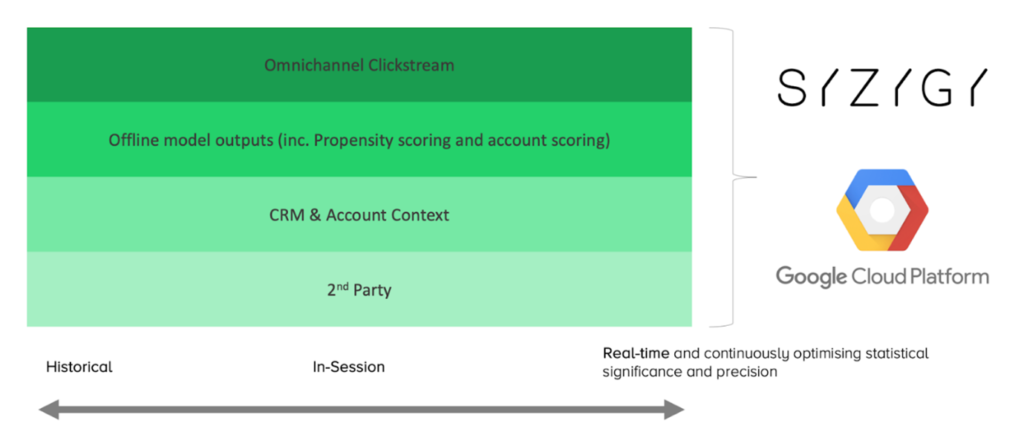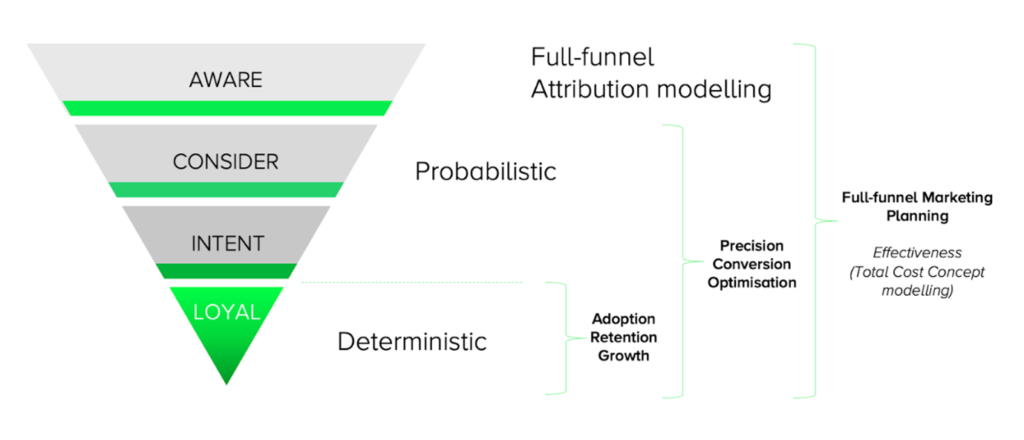From cookie, to past CRM and fixed consent

[ad_1]
The demise of the cookie as we all know it could have been given yet one more keep of execution by Google, however let there be little question: its finish is coming. But, persons are nonetheless underprepared: one latest research of 500 CMOs within the UK and US suggests that almost 50 p.c will not be effectively ready for the times when cookies develop into a factor of the previous.
They aren’t alone. Repeated delays and an absence of concrete roadmaps for credible scalable long-term alternate options for identification, concentrating on, reporting and evolving advertising methods are muddying the waters. Nonetheless, there are steps which might and needs to be taken by companies of every kind to organize for the day the cookie is lastly faraway from the jar. Parking the problem and sleeping on the job may show extra problematic in the long term, because the cookie has been one of many extra foundational elements of efficiency advertising and digital infrastructure as an entire. Making ready for its absence is a marathon, not a dash.
It is probably not horny, however a full information compliance, first-party information and activation technique must be an important first step. The issue with cookies is their ubiquity. We’ve all develop into very used to coping with them; nonetheless, they’re removed from the be all and finish all of recognising clients on-line and particularly in these more and more privacy-conscious days, they’ve vital limitations. Google’s personal VP and GM of adverts, Gerry Dischler, put it greatest: “Cookies and different third occasion identifiers which some are advocating for inside the business don’t meet rising expectations that customers have on the subject of privateness. They won’t stand as much as quickly evolving regulatory restrictions. They merely can’t be trusted in the long run.”
Fortunately, companies have been gifted extra respiratory area to organize for this coming paradigm shift each organisationally and technically in how manufacturers and platforms garner consent, stay related and foster full-funnel, and long-term, relationships. Make no bones about it, the impression of cookie depreciation shall be broad ranging. It’ll limit the potential for remarketing, lengthy a staple of on-line acquisition in an try to recapture the eye of those that might have checked out a product or web site and slipped by means of the online. It’ll additionally restrict decision with walled gardens, which have develop into so influential. Manufacturers typically can’t envisage a future with out liaison with Fb or LinkedIn platforms to broaden the attitude on clients. Apple are already forward having taken a product first stance on advert privateness opt-ins – given this path is now crushed, it seems set to be a well-trodden one. This may occasionally additionally set off an entire overhaul of consent and re-evaluation of remarketing as a technique, and lots of needs to be performing now to overtake their first occasion information consent in the event that they re-imagine their propositions in a brand new, cookie-free future.
The reappraisal of knowledge doesn’t cease there – to fill perceived gaps in data we’re taking a look at an increase once more in use of second occasion information sources and partnerships, and profiling to construct a extra full view of the client. As advert networks’ audiences diminish, the dimensions, scale and accuracy of cross-device monitoring will make it tougher and fewer helpful to sequence inventive. CRM approaches will develop into rather more helpful because of this, evolving into Expertise Relationship Administration (ERM) and offering a a lot richer view of buyer behaviour. This may fold CRM-to-ERM methods rather more intently again into digital planning, but in addition drive but additional concentrate on consent. This in flip will increase the bar for worth exchanges with shoppers – primary choices will not suffice, and bolder service exchanges shall be wanted to match the wants of audiences who’re effectively conscious of the worth of their time, consideration and information. When you might want to reaffirm consent continuously, you open common doorways to individuals leaping ship. The worth to remain must be vital.
The connection between model and writer can even change – not so simple as beginning with ‘dropping a cookie’, the onus shall be on manufacturers to cross specific and clear first occasion consent on to any supposed writer for enrichment. Knowledge clear rooms and an owned-ID graph will develop into rather more widespread to handle this course of alongside dynamically maintained consent observe. We additionally count on to see additional IP masking develop, once more following the trail crushed by Apple with Mail’s means to masks monitoring pixels, and to masks IP addresses from e mail senders. All of this combines to make model belief in information dealing with and stewardship a elementary given inside the post-cookie world.
All of this will likely seem to be so much – successfully a number of the longstanding material of digital advertising observe and web infrastructure is being unpicked, with out readability on what is going to exchange it. However manufacturers and entrepreneurs can take motion to organize for what comes subsequent. Embrace adjustments of adtech companions, who’re additionally higher ready for the newly cookieless panorama. Rethink consent and the reciprocal worth exchanges to shoppers. Amplify present information assortment, and discover an ID decision associate who fits your functions. Begin to construct second occasion information partnerships, and in the end, recognise that powerful conversations are coming and crucial. The cookie-free future might sound unsure, scary and unfamiliar, however it’s price remembering it’s roots and the usually missed potential. Cookies have at all times been given credibility with out query which for technologists has at all times been a frustration. The cookieless future ought to take away the boundaries they’ve lengthy set available on the market, and as a substitute open up a brand new, broader and richer future for well-rounded and helpful digital experiences with audiences as an entire.
There are some key actions that we’ve been taking with our savvy shoppers over the previous 12-24 months which flip what can seem to be a frightening damaging right into a shopper centered optimistic:
- Assess your vendor listing to see which companions you have already got, and is probably not utilising their information clear room performance e.g. Microsoft, AppsFlyer, Snowflake, AWS and GCP. Don’t be scared off by placing your eggs into one basket – the entire objective of the clear room is to be a protected platform agnostic dwelling for all of your 1st half information to dealer its integration between your exterior advertising ecosystem companions

- Get your expertise, product advertising, information and expertise design groups speaking significantly about evolving your data-value exchanges. Begin evolving now, and speed up for those who’ve already began. Transfer past publication sign-ups, voucher-codes and re-engagement effectively after buy. Construct true distinctive causes to sign-up and hold related together with your model e.g. unique bundles, loyalty solely you are able to do, sustainability and neighborhood programmes that amplify causes to share information past the core merchandise. This will embody recycling schemes, pop-up experiences, and associate occasions.
- Don’t neglect that the third occasion cookie-sunset doesn’t shut the door on associate information sharing. Use your clear room (AKA. CDP, DMP 2.0) to dealer significant and clear relationships with trusted companions whose proposition is complimentary or can lengthen new value-adds to your buyer base.
- .. don’t neglect addressing the measurement challenges that the cookie-sunset is already inflicting. Rethink or rethink Multi-touch Attribution. It has fallen wanting delivering on its guarantees. Multi-touch Attribution is creating a status for failure. It’s NOT about deploying an off the shelf CDP/DMP or attribution modeling resolution and hey-presto!
It’s ABOUT combining all out there information to interpret and contextualise efficiency drivers, to demystify contributors and affect assured optimisation – we name this Full-funnel Attribution outputs of which embody:
- Advertising and marketing spend with attributed view lens (e.g. Attributed vs Final Click on)
- Channel contribution to drive trusted price range reallocation
- Discover conversion paths to simply act on conversion blockers
- Act on section impression to optimise linear spend and put money into particular cohorts
- Content material effectiveness attributes worth to pages and contribution to conversion
- Venture and marketing campaign incrementality drill-downs to map efficiency attributed to particular initiatives run throughout groups
- Unify measurement of search (Paid + Natural) to align methods and start to remove cannibalisation – beginning to confidently show incrementality

Anthony Magee is the Director of knowledge and expertise expertise at SYZYGY.
Subscribe to the Search Engine Watch publication for insights on search engine marketing, the search panorama, search advertising, digital advertising, management, podcasts, and extra.
Be part of the dialog with us on LinkedIn and Twitter.
[ad_2]
Source_link






